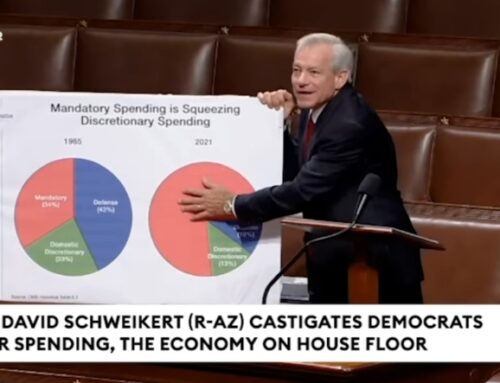Hubris (also hybris; pronounced /hju:bris/) means extreme haughtiness or arrogance. Hubris often indicates being out of touch with reality and overestimating one’s own competence or capabilities, especially for people in positions of power.
In this recent essay, Richmond Fed staff economist Kartik Athreya makes his case: “Economics is Hard. Don’t Let Bloggers Tell You Otherwise”. In what might seem to some a shocking display of hubris, Mr. Arthreya boldly states:
- In this essay, I argue that neither non-economist bloggers, nor economists who portray economics —especially macroeconomic policy— as a simple enterprise with clear conclusions, are likely to cont[r]ibute any insight to discussion of economics and, as a result, should be ignored by an open-minded lay public.
-
The relevant fact is that I work as a rank-and-file PhD economist operating within a central banking system.
- …writers who have not taken a year of PhD coursework in a decent economics department (and passed their PhD qualifying exams), cannot meaningfully advance the discussion on economic policy.
In setting the basis for his case, Mr. Athreya unwittingly destroys it:
- The main problem is that economics, and certainly macroeconomics is not, by any reasonable measure, simple. Macroeconomics is most narrowly concerned with the tracing of individual actions into aggregate outcomes, and most fatally attractive to bloggers: vice versa. What makes macroeconomics very complicated is that economic actors… act.
Many other economic bloggers have taken up Mr. Athreya’s paper. I want to take him to task for this very basic statement. Mr. Athreya works for a central bank, the very embodiment of central economic planning. History has shown that centrally planned economies fail spectacularly. And they do fail for exactly the reason cited by Mr. Athreya: economic actors….ACT. There is no person or group of people who are wise enough (even if they have PhDs), fair enough, or (thank goodness) powerful enough, to control an economy that is made up of 300 million souls, each of whom is acting in his own best interests.
So in order to make central planning work, we must all be crammed into boxes and made alike. We must work under the same conditions, receive the same pay and benefits, buy and sell the same products under the same conditions, run our businesses the same way, and raise our children to be worker bees in a giant government-run hive. When you want to start a business, hire or fire who you want, build something, buy or sell a product or create a new one, borrow money, or do most any other thing, and you are made to do it a certain way by regulation, that is the power of the government that you feel. Regulation is an essential part of central planning. Imagine how complicated Mr. Athreya’s calculations become when 300 million people are acting independently. It’s not a difficult task, as Mr. Athreya asserts. It’s an impossible one. That’s what he doesn’t want you to understand.
The U.S. dollar has lost 96% of its buying power in the 100 years since the creation of the Fed. And while numerous economic bloggers and others predicted the housing bubble, for example, Fed chiefs routinely claim that bubbles can’t be seen until they burst. How’s that for planning?
America was founded by people who came here to do things their own way. Colonial Americans came here to escape the clutches of the controlled European economy, mired in royalty, class, and guilds and thus devoid of liberty and opportunity. Virginia herself was founded as an economic venture, The Virginia Company. Freedom is always freedom to act. A great deal of our lives is devoted to maintaining life itself by earning a living and buying what we need and want. This is the very definition of economic activity. America’s greatness has been her unleashing of the human spirit, allowing us to act in our own best interests unfettered by arrogant central planners. This is what free markets are really about.
Regulation is the antithesis of freedom. Mr. Athreya works for a private company that controls the economy of the United States, and very poorly; it is not surprising that he wants to silence those who criticize the Fed.





